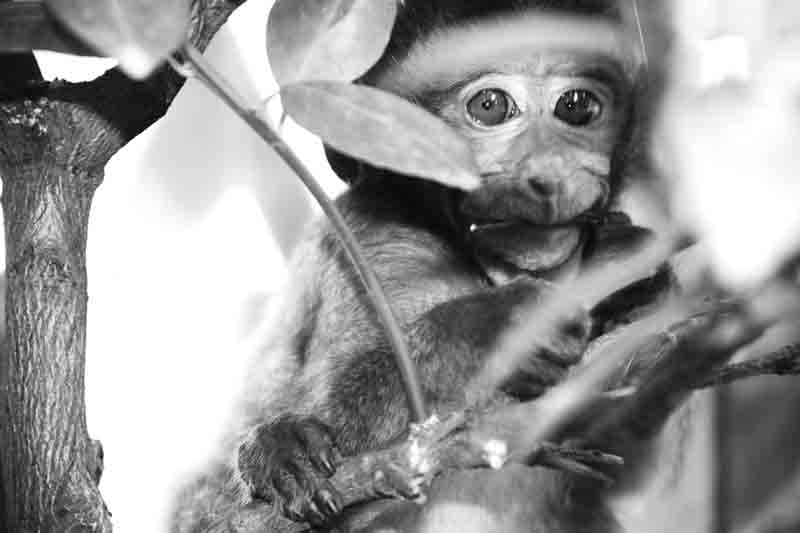In 1979, while filming an episode of Life on Earth with the BBC’s Natural History Unit, a young David Attenborough – today the world’s most famous natural history film-maker – came face-to-face with what were then the world’s most famous macaques. On a tiny offshore island in Japan, the naturalist – sporting rolled-up denims – delivered his piece de camera barefoot as dozens of these Old World primates swarmed his ankles. The troop had become famous for what he described as “making some remarkable changes in their behaviour”.
“For a long time, people thought that the way creatures like these feed was largely instinctive. But then in 1952, scientists visited this island and in order to entice them out into the open so that they could observe them more clearly, they started offering them sweet potatoes…” [At this point in the clip, one particularly bold macaque swipes a sweet potato from the presenter’s hand, trots across the beach to a shallow pool, dips the potato into the water and gives it a vigorous scrub.]
“After about a year, a young female called Emo began to take her roots down to a pool and wash off the sand and mud before eating them. Within a few weeks, her close friends and family – including her mother – were copying her. The habit spread and, eight years later, almost all the monkeys on the island habitually washed their sweet potatoes. Then a new variation arose. Instead of using fresh water, the monkeys took the roots down to the sea and washed them there – even when they were clean already. Perhaps they simply liked salt on their potatoes.”
It would not be the last time macaques, second only to humans in terms of geographical distribution, made the international headlines. Last year, award-winning photographer David Slater left his camera unattended at a national park in Indonesia. Before long, an inquisitive rare crested black macaque – mesmerised by her reflection in the lens – had seized the camera and somehow shot a splendid self-portrait, complete with goofy grin.
Macaques’ closeness to us, hinted at in such hijinks, has made possible extraordinary medical advances, including the development of rabies and polio vaccines, and drugs to manage HIV/Aids. With populations in Cambodia under continued threat from illegal hunting, Innov8 International is throwing a party tonight to raise funds for a new macaque enclosure at Phnom Tamao Wildlife Rescue Sanctuary, managed by Wildlife Alliance. Break out your best animal prints and get wild to the sound of Afrikana’s conga drums and DJ Wez T. Tickets for the event – sponsored by Smart Mobile, Total, Excell and Asian Tigers Mobility – cost $10 and include a welcome drink and canapés, and there are raffle prizes aplenty. Get yours at The Dollhouse, Jasmine Boutique, Mad Monkey Restaurant or Ebony Tree.
WHO: Animal lovers
WHAT: Rumble in the Jungle fundraiser
WHERE: Ebony Tree, St. 178
WHEN: 6:30pm October 4
WHY: Give orphaned macaques a safe place to go
